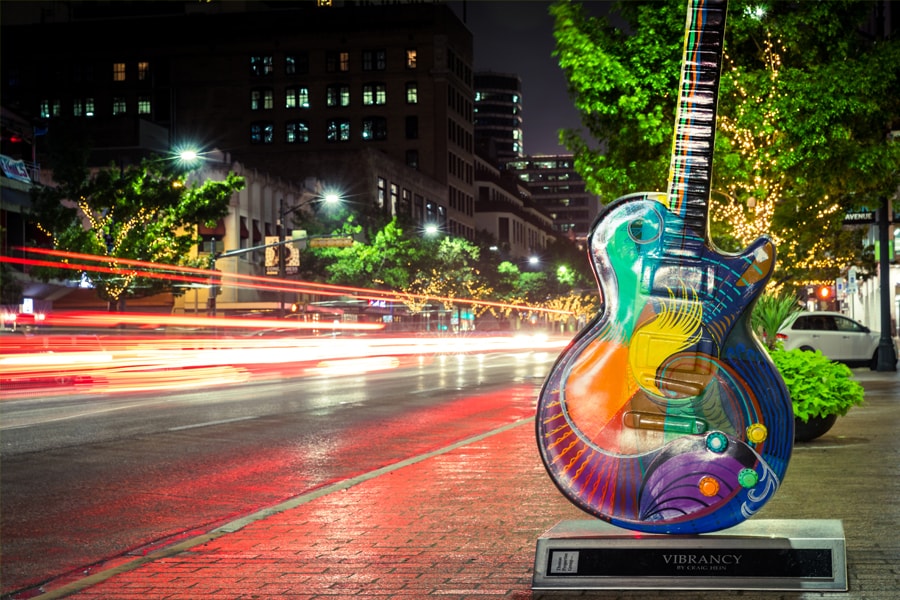
Vote in SXSW PanelPicker

Each year, #CMUatSXSW shows Austin and the world how the work happening at Carnegie Mellon University is shaping the future. From the future of work to "shapeshifting" furniture, CMU wants to tell that story again in 2019. Vote in SXSW PanelPicker for the CMU presentations below.
Designing A Future Fossil Object: The MoonArk
The MoonArk is an elaborately designed geometric capsule containing hundreds of images, poems, music, nano-objects and mechanisms headed for the lunar surface in 2020 aboard an Astrobotic lander. Created by an expert team at Carnegie Mellon, this futuristic reliquary involves 18 universities and organizations and collectively 250 contributing artists, designers, educators, scientists, choreographers, poets, writers, musicians, engineers and fabricators to create the first museum on the moon. Presented by Mark Baskinger, an associate professor in CMU's School of Design.
Morphing into the Future: "Shapeshifter" Materials
What if unassembled furniture could put itself together? Or if clothing could respond to skin conditions to keep you cool — or safe? And what if you could buy flat pasta that takes shape when cooking? It's all within the realm of possibility with "adaptive materials." What there is to know about the Morphing Matter Lab at Carnegie Mellon is in its name. This lab challenges and often upends what we think we know about things in our lives. It's where 2D flat pasta springs to 3D life once it's in boiling water, and a jacket made of an adaptive, transformative material reacts to humidity and body temperature — and responsively "vents" when worn. Materials as shapeshifters will inspire and give you a glimpse of what seems like future fiction being realized today. Presented by Lining Yao, an assistant professor in CMU's Human-Computer Interaction Institute.
Artificial Intelligence for Social Good
Rapid advances in artificial intelligence continue to open up new possibilities for using AI to tackle today's most challenging societal problems. Bringing together a set of advanced AI methods including machine learning, human behavior modeling and citizen science — and providing a much deeper understanding of these methods — allows us to address current challenges with an eye toward promoting social good. Learn how AI can be applied in areas such as health care, urban planning, social welfare and wildlife protection to help disseminate important health-based information, control traffic, address youth homelessness, and control wildlife poaching and product trafficking. Presented by Fei Fang, an assistant professor in CMU's Institute of for Software Research.
Coming Back from a World Without Human Touch
The World Health Organization has declared loneliness a public health epidemic. Silicon Valley culture includes 90-hour work weeks; it's easy to feel isolated, and hard to maintain relationships. Loneliness contributes to depression, anxiety, physical health issues, anger, and social isolation. In the era of #metoo, we have made human touch suspect and off limits. Could it be the thing we're missing? Do we know how to access it? We consider the application of touch for mental, emotional and physical wellness, and examine how we could transform our society with a population of relaxed, satisfied individuals. Join us as we envision a world where nurturing human touch is understood, wanted, welcomed and available for all. Presented by Stuart Candy, associate professor of School of Design, with Epiphany Jordan and Janet Trevino.
Can Humans Thrive in the Workplace of 2030?
Extraordinary forces are transforming the modern workforce. Technology and automation are rewriting and even eliminating some jobs, while thousands of as-yet-unknown jobs (IFTF study, 2017) will be created in the coming decade. And with the influx of Gen Z, four very different generations — each with its unique preferences and work styles — will be working together...and in close partnership with machines ... for the first time. So what skills are required to thrive in the workplace of 2030? How can employers harness the strengths of each generation to drive collaboration and innovation? Can AI eliminate bias and create a more fair and equitable work environment for all? The voices of all four generations will engage in a lively discussion about the not-so-dystopian future of work. Presented by Ari Lightman, distinguished service professor of digital media and marketing in CMU's Heinz College of Information Systems and Public Policy, with Bask Iyer, Natalie Zfat and Sally Eaves.
Inclusive Collaboration Spaces: What If?
Co-working and collaboration spaces were built to bring together entrepreneurs to support creative, innovative communities. But what if these spaces could not only be designed to support new ventures, but address the broader challenges like mobility, displaced workers, digital inclusion and equipping workers with 21st century skills and community vitality? What if technology and collaboration were not the end result, but the start of something greater? Leading experts on mobility, technology, digital inclusion and the future of work will discuss how to strengthen communities through collaborative spaces and the right programming and mobility support, and demonstrate the impact they are already having. Presented by Lee Branstetter, director of CMU's Future of Work Initiative, and Adam Paulisick, an adjunct professor in CMU's Tepper School of Business, with Diana Bucco and Juan Garrett.